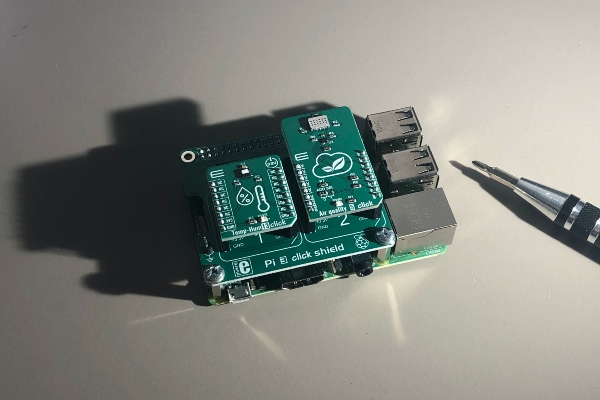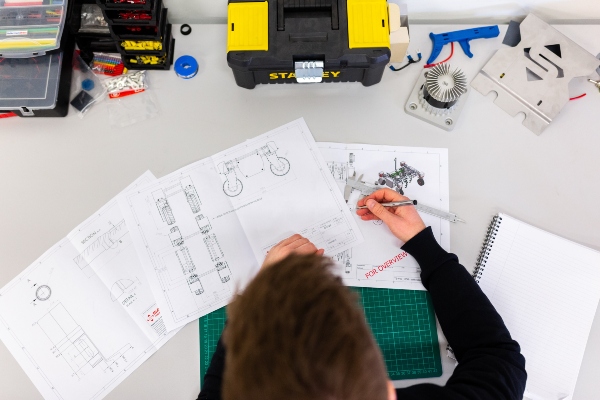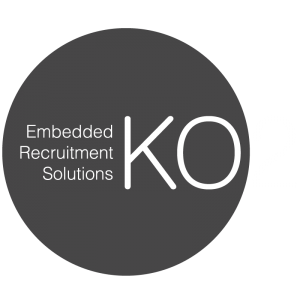The role of embedded software engineer is a niche position in the industry sector that requires a specific set of skills. Many candidates begin their careers as general software developers and then specialise in embedded systems, granting access to a really interesting area of software engineering that has plenty of potential for innovation.
If you’re thinking of becoming an embedded software engineer or are a software developer wanting to specialise, there are plenty of skills that will benefit you in this role. In this article, we share some of the best skills for embedded software engineers, covering technical abilities and soft skills.
Embedded Systems Design
Undoubtedly one of the most important skills required for embedded software engineers is embedded systems design. If you’re going to succeed in this industry sector you must understand the principles and patterns that are used to design embedded systems, as this will inform the programs you develop and the efficiency of these.
Elements of embedded systems design that you’ll need to be skilled in include selecting suitable and compatible hardware, scaling software, embedded programming languages and their advantages and disadvantages, and designing the software that the systems run on.

Programming Languages
Every software engineer needs to have programming language proficiency, and embedded software development is no different. Low-level languages are most popular for embedded software engineering, but certain languages are better suited to certain projects, so experience with multiple languages is ideal.
Some of the best programming languages for embedded software development include C, C++, Assembly language and Python. C++ proficiency is one of the most desirable skills of a software engineer in the embedded systems sector, but Rust is an up-and-coming contender that is also popular amongst employers.
Internet of Things (IoT)
The Internet of Things (IoT) is a rapidly developing system of connected devices that are used in a wide range of applications and devices in our everyday lives. Embedded systems and devices are an integral part of the Internet of Things, so one of the important skills needed for embedded software engineers is IoT knowledge and experience.
If you’re working on an IoT project, you’ll need to be confident in understanding how your embedded software and the device that it is for are connected to a wider network of devices and what is required to make your software compatible. Other internet-based technologies may play a part in this, so familiarity with these is also very useful.
Microcontroller Knowledge
Microcontrollers are the components that your embedded software will run on. An important part of embedded software engineering is being familiar with this electronic technology and knowing how to choose the best microcontroller for certain applications.
Having a good understanding of microcontroller architectures, power and memory management, programming and peripherals will put you in a great position to create software for specific devices that works perfectly with the firmware. This knowledge is one of the key skills for embedded software engineers, particularly when you’re doing low-level programming.

Understanding of Real-Time Operating Systems
A real-time operating system (RTOS) has become a popular alternative to single main loop programming in embedded systems thanks to its multitasking abilities. One of the embedded systems-specific skills needed for software engineering is familiarity with the elements involved in RTOS, including resource management and the different platforms. You also need general knowledge of operating systems and how they impact embedded software development, as most devices have limited memory and therefore need very efficient operating systems to function.
Electrical Engineering Experience
In order to properly understand what is required of the embedded software they develop, another of the key embedded software engineer skills required is experience in electrical engineering. When you’re working on a development project you’ll need to be familiar with the capabilities and features of the specific device, and you’ll find this much easier when you’re also familiar with how the device has been made.
Embedded software is reliant on the device that it controls, so you need to understand how things like components, resistors, circuits and signals work to ensure that your software will be compatible with the design. It will also benefit you to be familiar with electronic circuit schematics and PCB layouts, which is easiest if you’ve had experience drawing and assembling these yourself.
Testing And Debugging
A big part of any software development role is testing and debugging, and you’ll need good skills in both of these disciplines to succeed in embedded software engineering.
Embedded software needs to be tested throughout the development process to identify potential issues and ensure that the finished program is reliable and efficient. As part of this, you may need to write unit, integration and system tests or know how to use automated testing tools, selecting the best processes to confirm the safety and functionality of your code.
Debugging is often the result of testing, requiring a range of techniques that can vary depending on the programming language you use. Knowledge of classic debugging approaches is necessary here, as well as more general problem-solving skills to help you work through problems you encounter.
Hardware Experience
In line with having general electronic engineering skills, a successful embedded software engineer needs to have experience working with hardware. You’ll need to know how to use hardware test equipment like an oscilloscope and logic analyzer, as well as be confident in interpreting data sheets or reading schematics.
Signal Processing
As an embedded software engineer, you’ll need to know how signal processing works so that you can ensure the device you’re helping develop can communicate with others. Whether digital or analogue signals are involved, you’ll need to make sure that your software handles the information from input signals correctly and generates appropriate signals in response. You must have strong mathematics skills to understand signal processing, as well as an understanding of dynamic systems and control tasks.
Communication Protocols
Embedded systems exchange information using communication protocols, and as a software developer you’ll need to understand these to ensure that your device can work together with others. In embedded systems engineering, several different interfaces are used for communication, each of which has its own protocol.
Communication protocol skills involve being able to use the right protocols for the device and software that you’re developing. Some of the most frequently used in embedded systems software include USB, Zigbee, GPIOs, Bluetooth, CAN bus, Wi-Fi and EtherCAT.

Control Systems
Some embedded systems are also control systems, combining two engineering disciplines in a single design. This isn’t one of the most essential skills needed for embedded software engineers, but understanding control systems engineering principles can help elevate your design knowledge and lead to greater career opportunities.
Software Development Methodologies
Software development projects usually follow an established process based on a methodology that provides structure and direction for everyone involved. As an embedded software engineer, being familiar with these methodologies will ensure that you’re aligned with your colleagues whilst working on a project and understand what is required of you at each stage of development.
Agile methodologies, usually Scrum, are most common in the software development industry. You’ll need to be familiar with the fundamentals, principles and key roles involved in this methodology, along with the development and testing procedures required.
Cybersecurity
Whilst embedded software itself is quite secure and reliable because it is specific to the device that it runs on, embedded systems that use networks can be vulnerable to issues of cybersecurity. Some of the important skills needed for software engineering are secure coding, authentication mechanisms and cryptography, all of which will help to keep your embedded software as secure as possible.
Machine Learning
Finally, an embedded software developer skill that is becoming more valuable as time goes on is experience with machine learning and artificial intelligence. Embedded systems can be used with machine learning to gather data and then learn from this information to make predictions, using data more effectively and ultimately saving time and providing more valuable insight. As a software developer, you may be required to help develop programs which incorporate machine learning to achieve these outcomes.

Soft Skills Needed for Software Engineering
There are plenty of technical essential embedded software skills, but that’s not all that is required for the role. The soft skills needed for software engineering play just as important a part, and are something that interviewers will be looking for evidence of when you’re applying for new roles.
Here are some of the key soft skills required for embedded software engineers.
Teamwork
Whilst embedded software developers will spend a lot of their time working independently, this work will be done as part of a team development project. Teamwork is an essential soft skill, requiring the ability to collaborate and support others as well as emotional intelligence to judge situations and adjust your behaviour accordingly.
Time Management
As an embedded software developer, you’ll be tasked with completing your assigned sections of a project and aligning this work with deadlines and other members of your team. Good time management skills are crucial, as delays in your progress could hold up an entire project, so you’ll need to be good at sticking to deadlines, holding yourself accountable and motivating yourself whilst working alone.
Continuous Development
One of the most desirable skills in an embedded software developer is a commitment to continuous development. Whether you pursue this in your free time or make the most of the training and resources that are provided to you at work, making the effort to keep learning about new techniques and developments in your industry gives you a competitive advantage over other developers.

Communication
In line with teamwork, communication is another essential soft skill for embedded software developers that ensures you can work cohesively on a project with your colleagues. Not only do you need good interpersonal skills, but you’ll also need strong written communication skills so that you can record the progress of your software and the procedures you’ve followed, making it easy for someone else to understand what you’ve been doing.
Problem-Solving
We’ve already talked about the need for testing and debugging skills as a software developer, and problem-solving plays a big part in that. Not only do you need a resilient attitude, but also the ability to look at problems from different perspectives and think of creative ways to overcome challenges, based on your knowledge of classic software development and debugging techniques.
Summary
When you’re applying for an embedded software developer role, the interviewer will be looking for evidence and examples of all of the skills we have discussed in this article. Different roles will have more need for certain skills, but if you’re looking for a way to improve your success in job interviews, proficiency in all of the embedded software skills we’ve discussed will be very beneficial.
If you’re an embedded software developer looking for your next role, KO2 is a specialist recruitment agency that can help you find the perfect job opportunity. Take a look at our current embedded software development positions, or get in touch to discuss exactly what it is you’re looking for.







